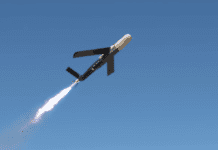This post is also available in:
 עברית (Hebrew)
עברית (Hebrew)
Smart cities are using pioneering technologies like IoT, 5G, AI, and more to optimize operations and efficiently manage resources. Innovation in smart city applications is showcased at the current Consumer Electronics Show (CES) in Las Vegas.
Here are a few intriguing smart city technologies:
The Israeli company Cognata has been named CES’ Innovation Awards Honoree in the smart city category. Its simulation platform is multi-layered and offers realistic digital twin 3D environments with real-life traffic agents and automatically creates digital twin terrain from imported HD maps.
Quanergy Systems has introduced a suite of 3D internet of things (IoT) lidar technologies for smart cities. Its solutions are being used for smart mobility, retail flow management analytics, building occupancy management, and perimeter intrusion detection.
The 100 percent solid-state CMOS lidar sensor is designed to enable the mass production of low-cost 3D lidar solutions.
The technology provides accurate real-time data needed by mission-critical applications to automate the next best action and enhance people lives and safety, according to the company.
The company is featuring a demo of a security solution that enables real-time analysis for the detection, tracking, and classification of intruders. The integrated MQ-8 and Qortex DTC platform provides native integration with major video management systems to create a solution that enables prompt responses to security breaches, while reducing costly false alarms.
In partnership with Securitas, Quanergy’s mobile surveillance solution with integrated 3D lidar can be deployed anywhere to ensure the security of remote sites with limited infrastructure.
In smart mobility, Quanergy has teamed with several companies to enable smart navigation for electronic vehicle (EV) charging robots, which, according to the partners, plays a critical role in building transportation infrastructure for smart cities, according to smartcitiesworld.net.
Glass is one of the building blocks of smart cities and now it helps keep us connected. As 5G deploys and demands a denser array of fiber, the flexibility and durability of Corning optical fiber can help make possible the necessary new 5G infrastructure and allow connectivity to reach further into cities and neighborhoods.
According to ces.tech, Corning invented a low-loss optical fiber that has strands of glass thinner than a single human hair, as well as the Outside Vapor Deposition manufacturing process that allows the creation of the highest quality fiber. The ultra-thin glass is not only extremely flexible and durable but can also move information through the air, enable new devices and transform everyday surfaces into tools, helping create a more connected and smarter lifestyle.


























